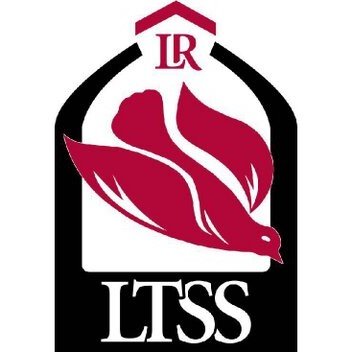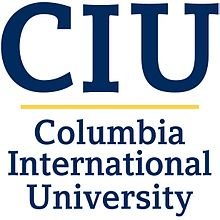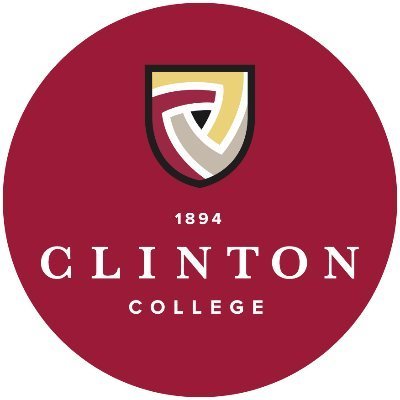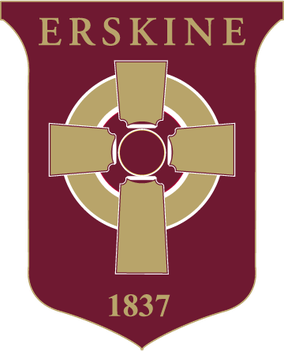
Theological Seminaries in South Carolina
South Carolina’s top seminaries for your journey in ministry
Best Theological Seminaries in South Carolina
South Carolina offers a rich spiritual and historical context for those seeking a theological education.
The seminaries in this state provide comprehensive programs that focus on biblical studies, theology, and ministry leadership, all within a supportive and faith-filled community.
Whether you are preparing for pastoral ministry, missions, or theological scholarship, South Carolina’s seminaries equip students with the skills and knowledge needed to lead with wisdom and compassion in various religious roles.
Top Theological Seminaries in South Carolina
Here’s a list of some of the top theological seminaries in South Carolina:

Lutheran Theological Southern Seminary (LTSS)
Location: Columbia, SC
Denomination: Evangelical Lutheran Church in America (ELCA)
Notable for: Founded in 1830, LTSS is part of Lenoir-Rhyne University and offers a range of theological programs, including the Master of Divinity (M.Div.), Master of Arts in Religion (MAR), and Doctor of Ministry (D.Min.). LTSS is known for its ecumenical approach and commitment to public theology, social justice, and pastoral care. Students are prepared for service in the Lutheran Church and broader Christian communities, with an emphasis on leadership, theological reflection, and pastoral care.

Columbia International University (CIU) Seminary and School of Ministry
Location: Columbia, SC
Denomination: Multi-denominational Evangelical
Notable for: Columbia International University is a prominent evangelical institution offering a wide range of theological degrees, including the Master of Divinity (M.Div.), Master of Arts in Ministry Studies (M.A.), and Doctor of Ministry (D.Min.). CIU is known for its global missions focus and commitment to equipping students for cross-cultural ministry, pastoral leadership, and Christian education.

Clinton College Seminary Program
Location: Rock Hill, SC
Denomination: African Methodist Episcopal (AME)
Notable for: Clinton College, a historically Black institution affiliated with the African Methodist Episcopal Church, offers a seminary program that focuses on preparing students for ministry within the AME tradition. The seminary offers degrees and certificates in theology and ministry, with a focus on pastoral leadership, social justice, and community engagement.

Erskine Theological Seminary
Location: Main campus in Due West, SC, with additional locations in Columbia, SC, Charleston, SC, and Greenville, SC.
Denomination: Associate Reformed Presbyterian (ARP)
Notable for: Erskine Theological Seminary, founded in 1837, is a leading Reformed seminary in the South, dedicated to biblical, Reformed theology. It prepares pastors, counselors, and Christian leaders for service through a variety of degree programs, including the Master of Divinity (M.Div.), Master of Arts in Practical Ministry (MAPM), Doctor of Ministry (D.Min.), and Master of Theology (Th.M.).
With locations in Columbia, Charleston, and Greenville, students across South Carolina can access the same accredited programs as the main campus in Due West. Erskine integrates rigorous academic instruction with practical ministry training, rooted in the Associate Reformed Presbyterian tradition, while welcoming students from diverse denominations.
Erskine Theological Seminary offers a flexible online platform, Erskine Online, allowing students to complete several of its degree programs.
Why Choose a Seminary in South Carolina?
Here are some reasons why it might be an ideal location:

Diverse Denominational Options
South Carolina is home to a wide range of seminaries representing various Christian traditions, including Reformed, Lutheran, Baptist, and Evangelical.
Balance Between Academic Rigor and Practical Ministry
Seminaries in South Carolina, such as Columbia International University and Erskine Theological Seminary, emphasize the integration of deep theological study with practical ministry experience.
Flexible Learning Options
Several seminaries in South Carolina offer online or hybrid learning formats, making theological education accessible to those who cannot commit to full-time, on-campus study.
(FAQs) About Theological Seminary in South Carolina
Here’s a list of Frequently Asked Questions (FAQs) about theological seminaries in South Carolina:
South Carolina seminaries offer a variety of degree programs, such as:
Master of Divinity (M.Div.)
Master of Arts in Practical Ministry (MAPM)
Master of Theological Studies (MTS)
Doctor of Ministry (D.Min.)
Master of Arts in Counseling (MAC)
Master of Theology (Th.M.)
Each seminary may offer specialized programs based on their theological focus, such as pastoral care, Christian education, counseling, or missions.
Seminaries in South Carolina cater to a variety of Christian denominations, including:
Reformed/Presbyterian (Erskine Theological Seminary)
Lutheran (Lutheran Theological Southern Seminary)
Evangelical (Columbia International University)
Southern Baptist (Southern Baptist Theological Seminary)
African Methodist Episcopal (Clinton College Seminary Program)
There are also seminaries offering multi-denominational or non-denominational training for students from various faith traditions.
Yes, many seminaries in South Carolina offer online or hybrid learning options. For instance, Erskine Theological Seminary allows students to complete degrees such as the MATS, MAPM, M.Div., Th.M., and D.Min. through Erskine Online, which offers courses in 8-week intensive formats or follows the traditional academic calendar. Similarly, Columbia International University offers online courses for flexibility in theological studies.
Tuition costs vary by institution and program. Full-time graduate theological education in South Carolina can range from $10,000 to $30,000 per year, depending on the program. Financial aid, scholarships, and grants are often available at these institutions to help reduce costs.
While specific admission requirements may vary between seminaries, general requirements typically include:
A completed undergraduate degree (Bachelor's degree)
Academic transcripts
Personal statement or testimony outlining faith journey and vocational goals
Letters of recommendation, often from pastors or ministry leaders
An admissions interview may also be required at some seminaries.
Graduates of seminaries in South Carolina pursue various ministry roles, including:
Pastoral ministry
Missionary work
Chaplaincy (hospital, military, etc.)
Christian counseling
Christian education
Non-profit or community leadership Some graduates also pursue advanced theological education or academic careers in theology.
Many seminaries offer field education, internships, and ministry placements. For example, students at Erskine Theological Seminary and Lutheran Theological Southern Seminary often gain hands-on experience through church placements or community service. CIU emphasizes global missions and cross-cultural work, allowing students to participate in both local and international ministry projects.
Master’s degrees such as the M.Div. typically take 3 to 4 years to complete.
Other master’s programs, like the MATS or MAPM, can be completed in 2 to 3 years.
Doctoral programs such as the D.Min. typically take 3 to 5 years depending on the pace and research requirements.
Yes, many seminaries welcome international students. However, international applicants may need to provide proof of English proficiency (such as TOEFL scores) and comply with visa requirements. Some seminaries may offer additional support for international students in terms of housing, scholarships, and transition assistance.
Yes, most seminaries offer financial aid options, including scholarships, grants, and tuition assistance programs. Some seminaries, like Erskine Theological Seminary, may also offer work-study programs or partnerships with local churches to help fund students’ education.
Seminaries in South Carolina place a strong emphasis on spiritual growth alongside academic study. Institutions like Erskine Theological Seminary and Lutheran Theological Southern Seminary integrate spiritual formation through prayer, worship, community life, and mentoring relationships with faculty and peers. Many seminaries also offer retreats, spiritual direction, and opportunities for service to foster personal and communal spiritual development.
